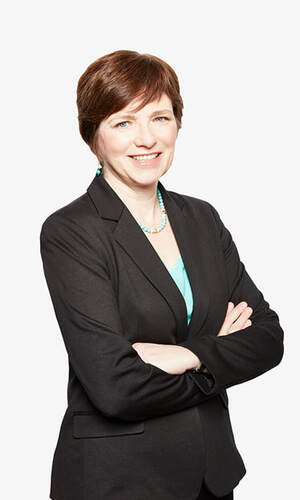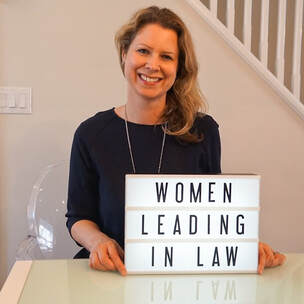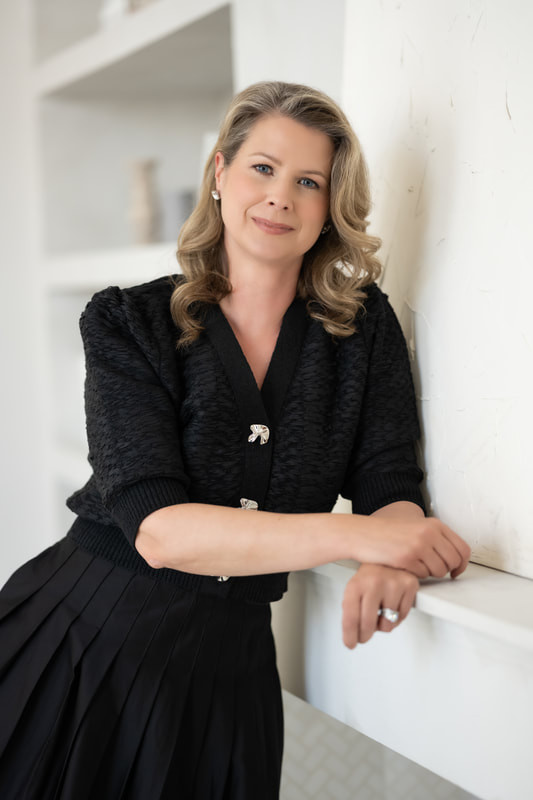 I first met the next leading lawyer in this series, Margaret Waddell, at an Advocates' Society Women in Litigation conference. She was the mentor assigned to my table of women litigators. Marg had a lot of valuable and no-nonsense advice to give. It was much appreciated by everyone at the table. Read on to learn Marg's story and some of that advice: 1. Tell me a little about your practice or business. In June 2017, I opened Waddell Phillips PC with my two partners, John K. Phillips and Julia Tremain. WP is a litigation boutique, which has now grown to a total of 8 lawyers, two contract lawyers, an articling student, Lakehead placement students, summer student and 8 support staff. My practice focusses on plaintiff side class actions, but I still also act on commercial litigation and executive employment matters, and some defence work on class actions. The class actions that we have underway or under investigation cover a broad gamut, including institutional abuse, consumer protection, product liability, medical devices, privacy breaches, and securities misrepresentations. We are always keeping our eye open for the next case that captures our interest, and that meets our firm objective of providing access to justice for victims of injustice or corporate malfeasance. 2. Why did you go to law school? I knew that I wanted to be a lawyer from a very young age. I was inspired by the character of Beth Davenport on the TV show Rockford files. Beth was a strong, independent woman, who spent a lot of time getting her client out of trouble with the law. However, criminal law was never of interest to me. My desire to become a lawyer was more based upon the fact that it would lead to a career that would allow me to be self-determinative, while at the same time I could provide advice and guidance to others who had brushed up against the legal system and needed help. Helping those in need has always been a strong motivating factor for me. 3. How did you get to where you are today? Design? Chance? Both? If you had asked me 30+ years ago what I would be doing now, I’m pretty sure that running my own eponymous firm would not have been anywhere near the top of the list. When I left law school, I certainly knew that I wanted to be a litigator, but more than that, I had no idea. I was pretty naïve – a small town girl with no lawyers in the family or our circle of friends, and no concept of how a business actually runs. I was also very young (I started law school after only 2 years of undergrad). However, along the way I had the great fortune to have some amazing mentors, who taught me the ropes; but also gave me a lot of leeway to learn through my own successes and failures while running files on my own, with only a light touch of supervision. I feel very fortunate to have matured as a lawyer when this was the norm, knowing that it has become increasingly rare for junior lawyers to be entrusted with clients’ cases from the beginning to the end. I also had an abundance of role models – who represented both what I would like to become and what I would never want to be. I believe that you need exposure to the good, the bad and the ugly in order to really come to terms with who you are in this profession, and what you can aspire to achieve. I learned from all these people, and eventually figured out what I really wanted to do, and that meant being my own boss, rather than trying to conform to someone else’s ideal of what the practice of law should look like. As for the practice area, that was entirely by chance. When I was called to the bar in 1989, the Class Proceedings Act had not yet been enacted. That came three years later. Contingency fees had been forbidden in Ontario up until that time, and when the CPA came into force, the thought of taking on such massive cases, and carrying the extraordinary risk that is associated with them seemed potentially foolhardy and definitely a gamble. That was not me. In the early years of practice I was no risk-taker. However, over time, I cautiously waded into the class action world, and the more exposure I had, the more I embraced it. The CPA is such an influential tool for enforcing the rights of the disenfranchised – it gives power to the powerless. It is a serious behaviour modification tool, and ensures that institutional and corporate actors can be held accountable for their misconduct. I like that, and it gives me a sense of purpose to know that I am helping people who might otherwise go without a remedy when they have been harmed. 4. What is your most significant achievement? What are you proud of? I don’t think that I have a single most significant achievement. Sure, there have been some great wins along the way, and also some spectacular losses. That comes with more than 30 years in the trenches. But the thing that I am most proud of is to be the only female head of a class action firm in Canada, to my knowledge. I am enormously proud of my firm and the wonderful group of professionals that have joined with me to make it a success. In three years, WP has grown to triple its original size. We have a wide range of class actions underway, and more in the investigation stage. In fact, I have achieved exactly what my original business plan had envisioned, all seemingly without any extraordinary effort on my part to make it happen. I am also immensely grateful to all the lawyers who had the faith in me to refer clients, or who sought me out to co-counsel on actions, and even more so to those that have taken the chance to work with me, when there are obviously safer and potentially more lucrative alternatives available to them. 5. What are some key challenges, and more importantly, opportunities for women in law? The opportunities for women in law are vastly expanded from 3 decades ago. Women entering law are no longer the exception, or seen as a “woman in a man’s world”. I don’t believe that newer calls need to go to the same lengths that those that preceded them had to go to achieve equality. The world is starting to acknowledge that the diversity of views and life experiences that women bring to the profession, although different from their male peers, are equally valid and important. There are more women in leadership roles, and the networks of mentors and sponsors are ubiquitous. These were non-existent when I started in the practice. I think that as the barriers are broken down, and new attitudes take over the profession, particularly about the ways that we practice law, the opportunities are endless. Innovation and technology have made a huge difference and will continue to do so. Women are equally placed to ride that wave, and to design their own futures in a way that suits their circumstances, skills and aspirations. Sure, the big firms will endure, and for many that is the grail that they seek. It will be there for them; but the opportunities for women now are really only circumscribed by their own imagination and desire. 6. What advice would you give a woman starting her legal career? I don’t have a pat answer to this question. It really depends on the woman, and what she wants to get out of her legal career. The obvious advice is to always be prepared – know your stuff – because to succeed in this profession, as in any other, you have to work hard and be prepared for the unexpected. But that’s a trite response. There are a lot of very hard working, highly capable women with successful careers, and they are not happy. I think that unhappiness comes from compromising your own values and desires. So, I would say, don’t do that. Don’t settle in a job that is sucking away your joy just for the security of a pay cheque. Take risks. And be true to your inner self. If you do the things that make you happy and give you fulfilment, you will be a success. --------------------------------------------------------------------------------------------------------- Thanks for these wise words, Marg, and thank you for participating in this series. I started this blog series because I was tired of hearing about women leaving law and wanted to hear about women leading in law. The "Women Leading in Law" series focuses on good news stories and highlights amazing women succeeding in the legal profession. Each post includes the profiled lawyer's answers to six questions. Prepare to be inspired! ICYMI - previous posts profiled the following amazing lawyers: Nandi Deterville, Jennifer Quaid, Maryann Besharat, Cynthia Mason, Roots Gadhia, Evelyn Ackah, Carrisa Tanzola, Sarah Leamon, Robin Parker, Lorin MacDonald, Karen Yamamoto, Victoria Crewe-Nelson, Lynne Vicars, Kemi Oduwole, Anne-Marie McElroy, Jennifer Gold, Jordana Goldlist, Megan Keenberg, Yadesha Satheaswaran, France Mahon, Sarah Molyneaux, Richa Sandill, Vivene Salmon, Kim Whaley, Alisia Grenville, Frances Wood, Maggie Wente, Anita Szigeti, Neha Chugh, Christy Allen & Nancy Houle, Suzie Seo, Kim Gale, Alexi Wood, Melissa McBain, Erin Best, Gillian Hnatiw, Melanie Sharman Rowand, Meg Chinelo Egbunonu, Lisa Jean Helps, Nathalie Godbout Q.C., Laurie Livingstone, Renatta Austin, Janis Criger, May Cheng, Nicole Chrolavicius, Charlene Theodore, Dyanoosh Youssefi, Shannon Salter, Bindu Cudjoe, Elliot Spears, Jessica Prince, Anu K. Sandhu, Claire Hatcher, Esi Codjoe, Kate Dewhirst, Jennifer Taylor, Rebecca Durcan, Atrisha Lewis, Vandana Sood, Kathryn Manning, Kim Hawkins, Kyla Lee, and Eva Chan.
0 Comments
Your comment will be posted after it is approved.
Leave a Reply. |
Erin C. Cowling is a former freelance lawyer, entrepreneur, business and career consultant, speaker, writer and CEO and Founder of Flex Legal Network Inc., a network of freelance lawyers.
Categories
All
Archives
December 2022
|
|
(C) 2014-2024 Cowling Legal. All rights reserved.
|
Please note I am not currently practicing law.
Information on this website does not constitute legal advice and is for informational purposes only. Accessing or using this website does not create a solicitor-client relationship. See website Terms of Use/Privacy Policy. info@cowlinglegal.com
3080 Yonge Street, Suite 6060 Toronto,ON M4N 3N1 (appointment only) |







 RSS Feed
RSS Feed
